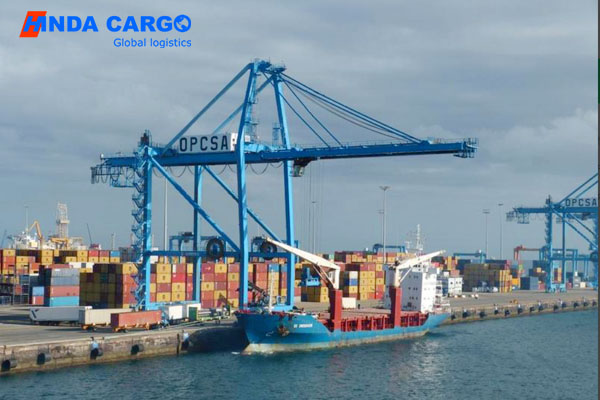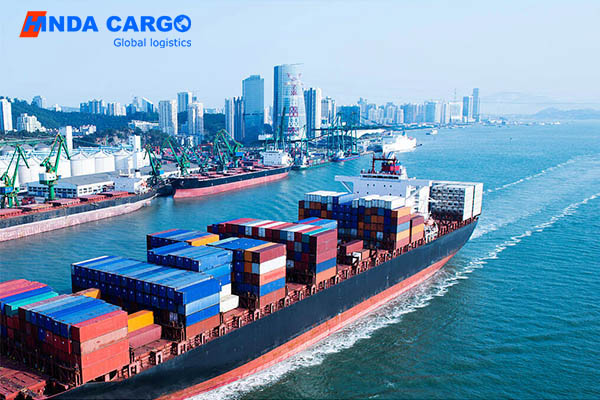Are Shipping Cost and Freight Cost the same?
The terms Shipping Cost and Freight Cost are often confused. Although they can be used interchangeably in some cases, they represent different concepts and cost structures in the professional field.
This article will explore the differences between Shipping Cost and Freight Cost, their respective components, and their applications in international logistics to help readers better understand and apply these two terms.

Definition and composition of shipping cost
Freight Cost usually refers to the total cost of transporting goods from the place of shipment to the place of receipt. It covers all the costs of the entire transportation process, not just the actual transportation costs, but also other related additional costs.
Main components of Shipping Cost
1. Basic transportation cost: This is the core part of Shipping Cost, which refers to the actual transportation cost of goods from the place of shipment to the place of receipt. Depending on the mode of transportation, such as sea, air, land and rail transportation, the basic transportation cost will vary.
2. Loading and unloading costs: During the transportation of goods, multiple loading and unloading operations are required, including loading at the departure point, transit in the middle and unloading at the destination. These operations will incur corresponding costs.
3. Storage costs: Goods may need to be temporarily stored in a warehouse during transportation, and these storage services will incur costs.
4. Insurance costs: In order to ensure the safety of goods during transportation, freight insurance is usually purchased. The insurance cost depends on the value of the goods and the degree of risk.
5. Customs declaration and customs clearance costs: International cargo transportation involves customs procedures, including customs declaration and customs clearance. These services require professional customs declaration agents and incur corresponding costs.
6. Other additional costs: Such as fuel surcharges, port fees, security fees and document processing fees, etc., are all additional costs during transportation.
Characteristics of Shipping Cost
1. Comprehensiveness: Shipping Cost covers all costs in the process of cargo transportation and is a comprehensive cost concept.
2. Transparency: Shipping Cost is usually provided by the transportation company with a detailed cost list, and customers can clearly understand the composition of each cost.
3. Diversity: The composition of Shipping Cost is complex and involves multiple cost items. Depending on the different modes of transportation and service content, the cost structure will vary.

Definition and composition of freight cost
Freight cost usually refers to the basic transportation cost incurred during the transportation of goods. It mainly focuses on the transportation process of goods from the place of shipment to the place of receipt, excluding other additional costs.
Main composition of freight cost
1. Basic transportation cost: This is the core part of freight cost, which refers to the actual transportation cost of goods during transportation. Different modes of transportation will have different freight rates, such as charging by weight, volume or distance.
2. Transit cost: In multimodal transport or long-distance transport, goods may need to be transshipped in the middle, and these transshipment operations will incur corresponding costs.
3. Fuel surcharge: In order to cope with the fluctuation of fuel prices, transportation companies usually charge fuel surcharges as part of freight cost.
Features of freight cost
1. Focus: Freight cost mainly focuses on the basic transportation cost of goods, excluding other additional costs.
2. Simplification: Compared with shipping cost, the composition of freight cost is relatively simple, mainly involving basic transportation costs and a small amount of additional costs.
3. Applicability: Freight Cost is widely used in the logistics industry and is applicable to various modes of transportation and types of goods.

Differences between shipping cost and freight cost
1. Conceptual differences
Shipping cost is a broad concept that covers all costs in the process of transporting goods, including basic transportation costs and other additional costs. Freight cost is a narrow concept that mainly refers to the basic transportation costs of goods, excluding other additional costs.
2. Differences in composition
The composition of shipping cost is relatively complex, involving a variety of cost items, such as loading and unloading fees, storage fees, insurance premiums and customs clearance fees. The composition of freight cost is relatively simple, mainly including basic transportation costs and fuel surcharges.
3. Differences in application scenarios
Shipping cost is usually used to describe the total cost of the entire transportation process, and is applicable to scenarios that require a comprehensive understanding of transportation costs, such as corporate logistics management and international trade. Freight cost focuses more on the calculation of basic transportation costs and is applicable to specific transportation operations and cost accounting.
4. Differences in cost transparency
Shipping cost is usually provided by the transportation company with a detailed cost list, so that customers can clearly understand the composition of each cost, and the cost transparency is high. Freight Cost has a relatively simple cost structure, but may not include some hidden costs, and the cost transparency is relatively low.
Conclusion
Shipping Cost and Freight Cost play an important role in logistics and international trade. Although they are often confused, they have obvious differences in the professional field. Shipping Cost is a broad concept that covers all costs in the process of transporting goods, including basic transportation costs and other additional costs. Freight Cost is a narrow concept that mainly refers to the basic transportation costs of goods, excluding other additional costs.
Understanding the difference between shipping cost and freight cost can help enterprises and consumers better choose and manage logistics services and control transportation costs.




